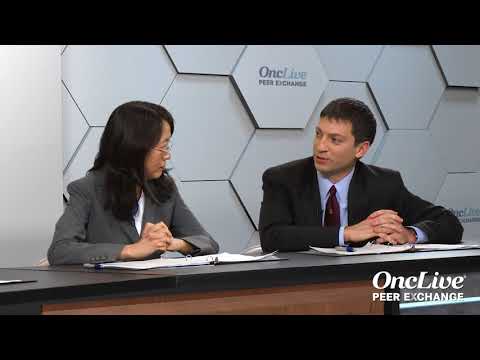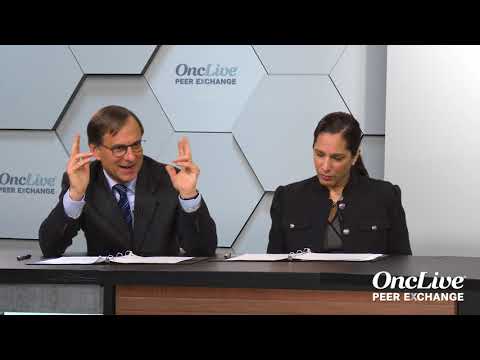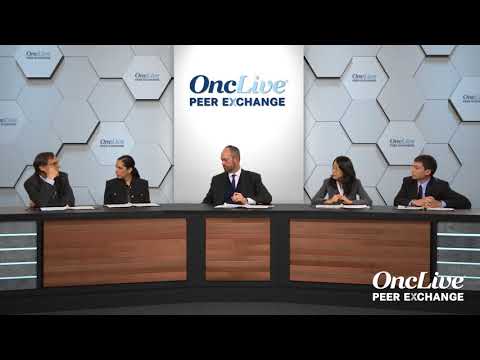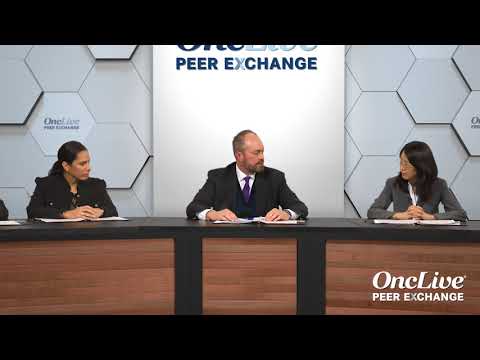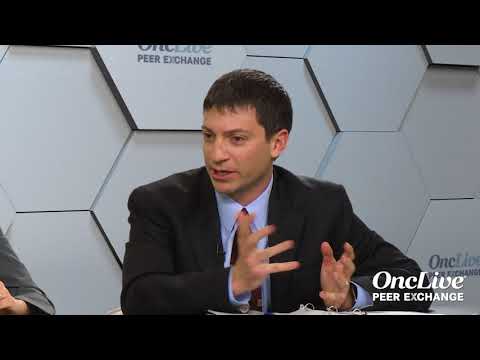
Chronic Lymphocytic Leukemia
Latest News
Latest Videos

CME Content
More News
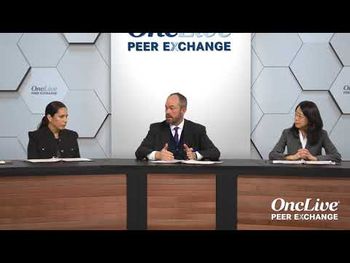

Aaron Logan, MD, PhD, discusses the most promising combinations and available treatments for patients with chronic lymphocytic leukemia.
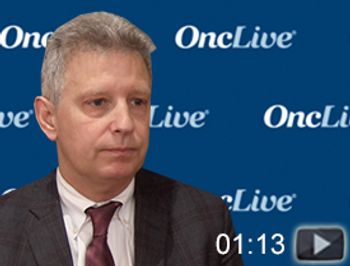
Ian Flinn, MD, director of the Blood Cancer Research Program, Sarah Cannon Research Institute, discusses next steps with venetoclax (Venclexta) and obinutuzumab (Gazyva) in patients with previously untreated chronic lymphocytic leukemia (CLL).

Patients with relapsed/refractory CLL who failed on previous treatment with a BCR signaling pathway inhibitor had an overall response rate of 65% following treatment with venetoclax (Venclexta).

Matthew S. Davids, MD, MMSc, associate director, Dana-Farber Cancer Institute, Center for Chronic Lymphocytic Leukemia, discusses the combination of ibrutinib (Imbruvica) and obinutuzumab (Gazyva) for patients with relapsed or refractory chronic lymphocytic leukemia (CLL).

Kerry Rogers, MD, assistant professor, Internal Medicine, Division of Hematology, The Ohio State University Comprehensive Cancer Center, discusses the initial results of the phase II treatment-naïve cohort in a phase Ib/II study of obinutuzumab (Gazyva), ibrutinib (Imbruvica), and venetoclax (Vencelxta) in chronic lymphocytic leukemia (CLL).
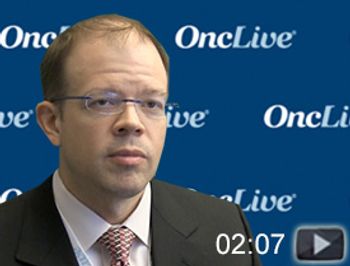
Aaron Logan, MD, PhD, assistant professor of clinical medicine, UCSF Helen Diller Family Comprehensive Cancer Center, discusses treatment options for patients with chronic lymphocytic leukemia.
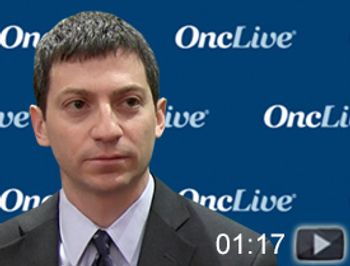
Matthew S. Davids, MD, MMSc, Associate Director, Dana-Farber Cancer Institute, Center for Chronic Lymphocytic Leukemia, discusses ibrutinib plus FCR in younger patients with CLL.

Adding ibrutinib to a standard frontline chemoimmunotherapy for chronic lymphocytic leukemia induced negative minimum residual disease status in bone marrow for 83% of patients.

Richard Furman, MD, discusses the current management of chronic lymphocytic leukemia and the future of combinations, including venetoclax and ibrutinib, for this patient population.

Ian Flinn, MD, Director of the Blood Cancer Research Program, Sarah Cannon Research Institute, discusses the safety, efficacy, and MRD negativity of a combination of venetoclax (Venclexta) and obinutuzumab (Gazyva) in patients with previously untreated chronic lymphocytic leukemia (CLL) during the 2017 ASH Annual Meeting. Overall, 32 patients were treated with this combination in the first-line setting. Investigators saw high complete remission (CR) rates, with over two-thirds of patients experiencing a CR, Flinn explains. In addition, high MRD negativity rates were also demonstrated, in both the peripheral blood and the bone marrow.

Over the past few years, remarkable advances have been achieved in the field of chronic lymphocytic leukemia by rationally targeting pathways overexpressed and used by the malignant clone for proliferation and survival.
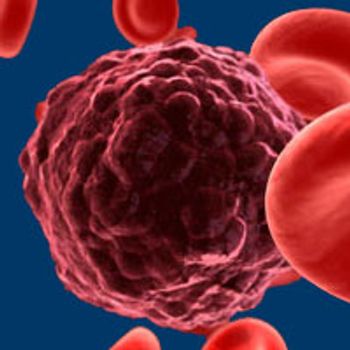
The combination of venetoclax and rituximab reduced the risk of disease progression or death by 83% versus bendamustine plus rituximab in patients with relapsed or refractory chronic lymphocytic leukemia.

Despite a faster time to complete remission, the addition of rituximab (Rituxan) to ibrutinib (Imbruvica) did not improve PFS or overall survival OS compared with ibrutinib alone in patients with CLL.

The combination of ibrutinib (Imbruvica) and venetoclax (Venclexta) elicited a complete response (CR) or CR with incomplete hematologic recovery rate of 47% for patients with relapsed/refractory chronic lymphocytic leukemia.

Kerry Rogers, MD, Assistant Professor, Internal Medicine, Division of Hematology, The Ohio State University Comprehensive Cancer Center, discusses a phase II trial of early intervention with ibrutinib (Imbruvica) in patients with asymptomatic, high-risk chronic lymphocytic leukemia (CLL) during the 2017 ASH Annual Meeting.

Jacqueline C. Barrientos, MD, associate professor, The Feinstein Institute for Medical Research, Northwell Health, discusses ibrutinib (Imbruvica) in elderly populations with CLL.

Jacqueline Claudia Barrientos, MD, discusses the appropriate treatment strategies for elderly patients with chronic lymphocytic leukemia.
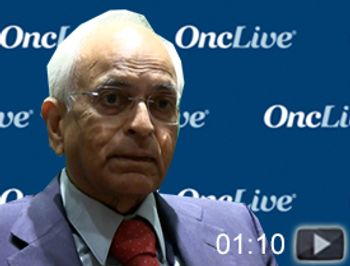
Kanti R. Rai, MD, discusses older populations with chronic lymphocytic leukemia.

Loretta J. Nastoupil, MD, discusses the study of the triplet of ublituximab, umbralisib (TGR-1202) and ibrutinib in CLL.

Jacqueline Claudia Barrientos, MD, discusses emerging treatment options in CLL.

Jacqueline C. Barrientos, MD, associate professor, The Feinstein Institute for Medical Research, discusses the management of elderly patients with chronic lymphocytic leukemia (CLL).

The next frontier in advancing the field of chronic lymphocytic leukemia (CLL) is identifying patients who will not experience long-term progression-free survival on novel agents.
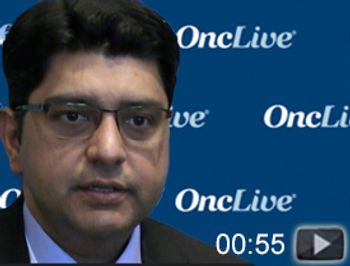
Farrukh Awan, MBBS, associate professor, The Ohio State University Comprehensive Cancer Center, discusses the importance of fluorescence in situ hybridization (FISH) testing for patients with chronic lymphocytic leukemia (CLL).
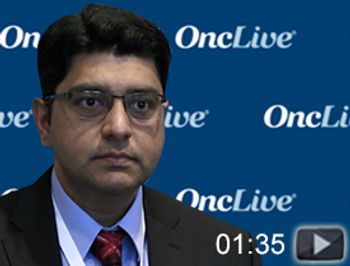
Farrukh Awan, MBBS, associate professor, The Ohio State University Comprehensive Cancer Center, discusses combinations with ibrutinib (Imbruvica) in chronic lymphocytic leukemia.


